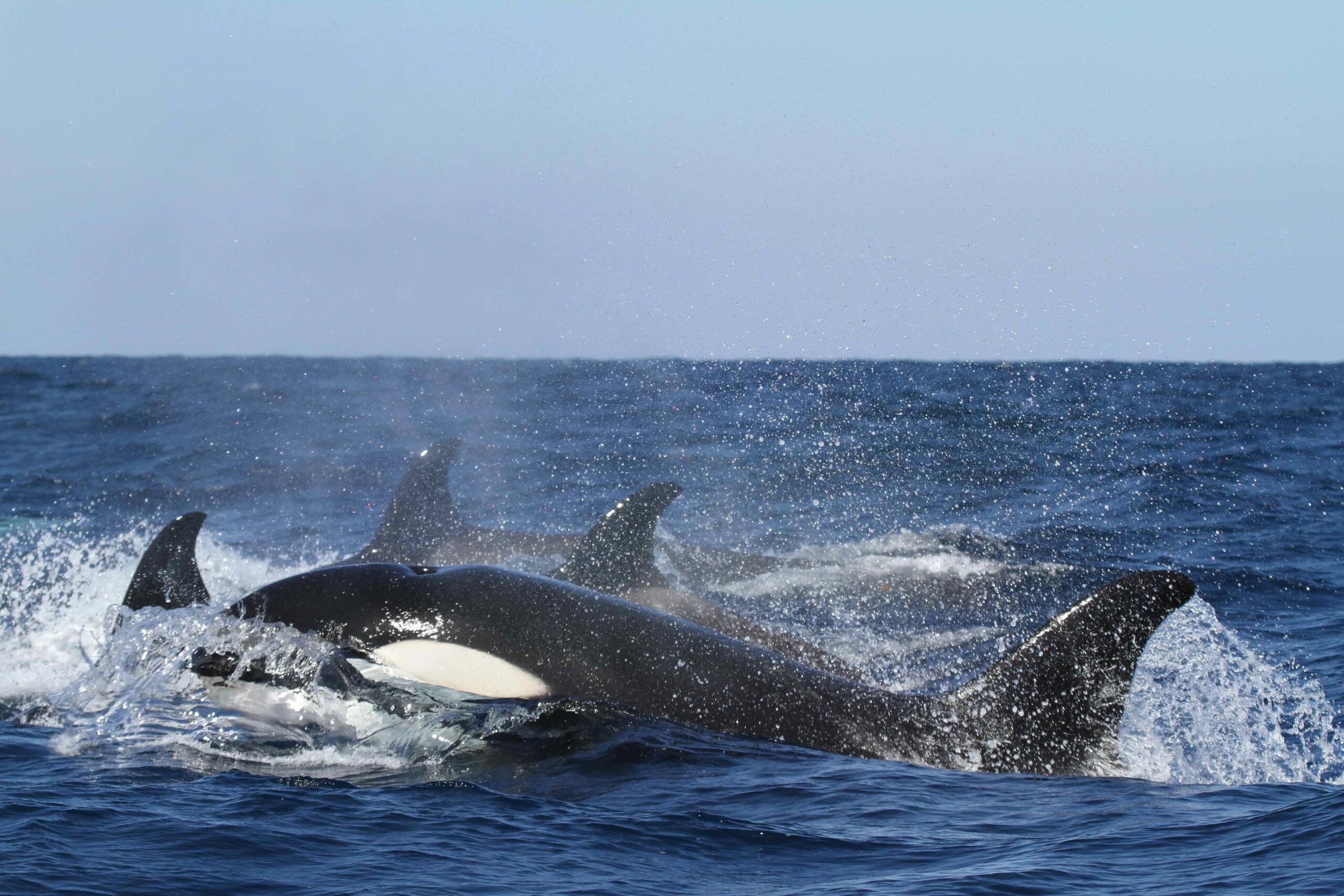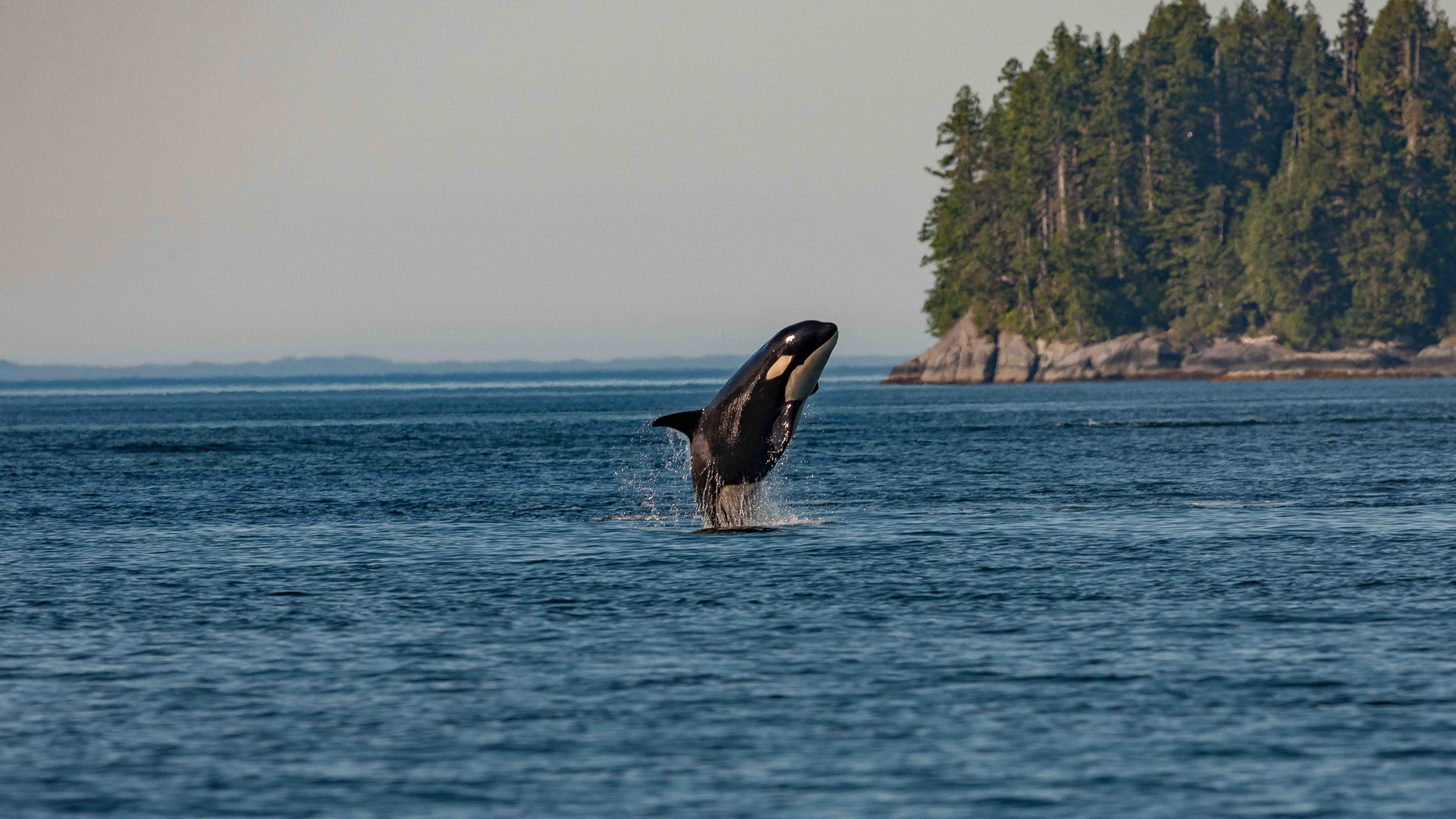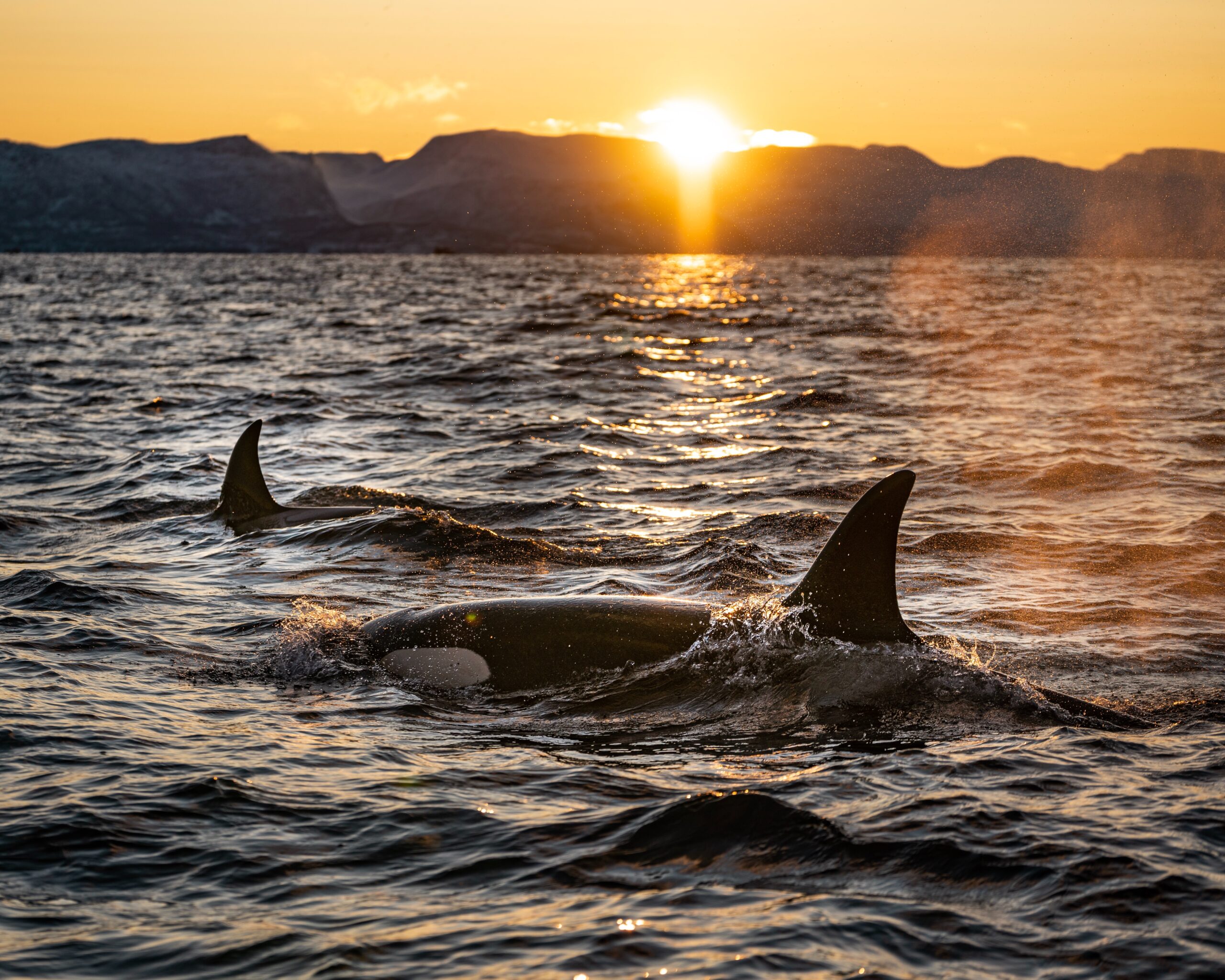
Boaters Play Critical Role
In protecting endangered whalesBe Whale Wise
Labor Day weekend is approaching, the last hurrah for many summer boaters before buckling down for the fall. As scores of vessels take to local waterways over the holiday, it’s an important time to stay vigilant and keep safe on the water. San Juan County’s Department of Environmental Stewardship calls on boaters to act as stewards of our fragile marine ecosystem by adhering to regulations and following Be Whale Wise boating practices for the safety of all in the Salish Sea.
The recent news about our Southern Resident killer whales has been sobering. This summer, we’ve marked a record length of absence for J Pod during peak season – over 100 days. In July, adult male K-21 Cappuccino, the last surviving male of his matriline, was sighted in very poor condition and is now presumed to be dead, bringing the resident population to just 74 whales. Remembrances of J-35 Tahlequah’s journey with her deceased baby in 2018 were another stark reminder of the shockingly rapid changes this endangered population has experienced.

The Southern Resident killer whales face three key threats to their survival: lack of prey (especially Chinook salmon), toxic pollution, and disturbance from vessels. Under these pressures, the whales appear to be shifting their patterns to spend more time outside of their traditional foraging area in the Salish Sea. In light of this, a new federal rule went into effect last month, expanding their protected critical habitat to encompass a total protected area of 18,000 square miles from the Canadian border to Big Sur, California.

Best Practices and Regulations
With our resident whales facing so much pressure, following the marine laws and Be Whale Wise guidelines is critically important. As you enjoy exploring our waterways, you’ll be certain to encounter many types of whales and other marine mammals who likewise must be protected. And though they’ve been scarce, when the residents do return to our inland waters, they’ll be accompanied by a number of young calves and may need to work even harder to forage together. The whales need guardians on the water to help create a safe space around them. You can be a guardian to the whales by slowing down, observing safety guidelines in the presence of whales, and using the whale warning flag to alert others on the water.
Review the regulations and learn about best practices by watching our instructional video: Boating with Whales in the Salish Sea – What You Need to Know. And if you don’t have one yet, get your whale warning flag by clicking the button below.
Protecting the marine environment
The San Juan County Department of Environmental Stewardship works to preserve fresh water resources, protect the marine environment, and coordinate recycling and solid waste throughout the County by implementing integrated projects and programs in partnership with others. Be Whale Wise is a partnership of governmental agencies, nonprofits and other stakeholders in British Columbia and Washington state to research, implement and educate regarding laws and best vessel practices to protect the unique and fragile marine resources found in the area.
Contact: Dr. Frances Robertson, Marine Program Coordinator Environmental Stewardship San Juan County francesr@sanjuanco.com or call (360) 370-7592.